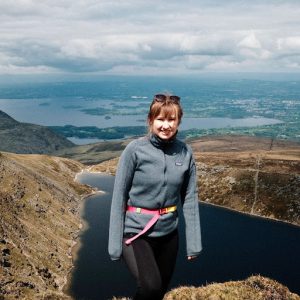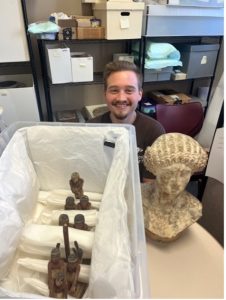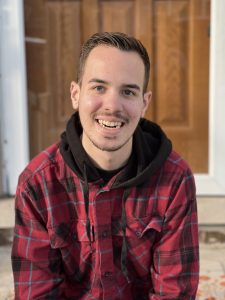Biography
We are excited to introduce Dr. Avenel Rolfsen, a professor of History. She earned her PhD in African History from Indiana University-Bloomington in 2024. When asked how she got into her area of research, she said, “I became interested in African history as an undergraduate! I was minoring in French and majoring in history. My advisor at the time, an Africanist historian, encouraged me to study French colonialism in Africa for my senior thesis. I also got the chance to spend a summer in Senegal learning Wolof (the most widely spoken language in Senegal). After that, I knew it was something I was interested in studying more in graduate school!”

Areas of Research and Scholarship
Dr. Rolfsen’s primary area of research includes 19th and 20th-century Senegal (West Africa). Her work focuses on the histories of giving, charity, and humanitarianism during the French Colonial Period in Senegal, as well as the history of Islam and Islamic social welfare practices in West Africa. Her research has been supported by a Fulbright-Hays Fellowship, a Charlotte Newcombe Doctoral Fellowship, and a Debra Mesch Doctoral Fellowship for Research on Women’s Philanthropy.
Outside of the classroom
Dr. Rolfsen enjoys cooking, baking, spending time outside, hiking (as pictured), biking, or walking her dog. She has recently been trying to teach herself how to sew by making pillowcases. Her goal is to sew her own clothes eventually.
Spring 2026 Courses
- HST 305: The Struggle for Freedom: Nations and Nationalism in Africa
- GHS 206: Africa and the World: Past Legacies and Contemporary Transformations
Other Courses Taught
- TI 204-HST/HST 205: Questions in History: African History through Music
- GHS 206: Resistance and Reaction: Colonialism and Postcolonialism in Africa
- GHS 207: Resistance and Rights: Global Women
- TI 204-HST/HST 205: Questions in History African Environmental History
- HST 305: Humanitarianism and Development in African History


 Q: When did you attend Butler, and what was your major/minor?
Q: When did you attend Butler, and what was your major/minor?
 holar at the Center for Africana Studies and Culture at IUPUI. Dr. Fletcher previously taught at Butler University as an adjunct professor in the Core program and is excited to be back on campus! Dr. Fletcher looks forward to meeting students and engaging them with the course material. She also hopes to expand student’s understanding of public history, offer new perspectives and subjects in history, and have students interact with the Indianapolis community.
holar at the Center for Africana Studies and Culture at IUPUI. Dr. Fletcher previously taught at Butler University as an adjunct professor in the Core program and is excited to be back on campus! Dr. Fletcher looks forward to meeting students and engaging them with the course material. She also hopes to expand student’s understanding of public history, offer new perspectives and subjects in history, and have students interact with the Indianapolis community.